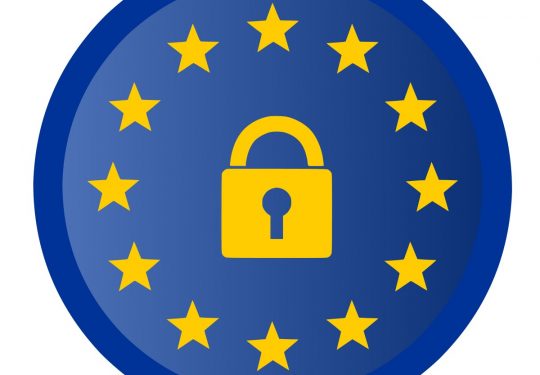On Monday the 3rd of December the European Parliament talks about the revision of the Public Sector Information (PSI) Directive. This Directive promotes the release of re-usable information from European public sector organizations. The revision focuses on reducing market entry barriers, in particular for SMEs, by limiting the exceptions that allow public bodies to charge for the re-use of their data more than the marginal costs of dissemination. The original revision prevents member states from protecting databases like, company registers and Ultimate Beneficial Ownership (UBO) registers, with sui generis database rights. However, an amendment was proposed to remove this passage from the revision. A coalition of twenty civil society organizations urges the European Parliament to reject this amendment to prevent countries from restricting access to company and UBO registers.
The original revision of the PSI-Directive would limit the use of sui generis database rights that public bodies use to limit access and re-use of open registers. The signatories find this a step in the right direction, as it lowers the barrier for fundamental datasets that promote economic growth and the prevention of crime, to be accessible to the many, and not the few. The proposed amendment 32 will nullify this positive purpose of the revision of the PSI Directive.
Database rights and company and UBO registers
Especially for company and UBO registers, the limitation of marginal costs and sui generis database rights are important not only for the economic value SMEs may generate by reusing the dataset. Journalists, research institutions and citizens enjoy equal rights to information and transparency. Although most European countries charge users for accessing their company registers, others started to grant free and open access to the registers, such as France, Belgium, Romania, Bulgaria, Finland, Denmark and the United Kingdom. The signatories fear that these member states will start charging for accessing the UBO registers, when these registers become mandatory in 2019, in accordance with the fifth European Anti-Money Laundering Directive.
An example of a country that charges users for accessing their company registers is the Netherlands. The Dutch government is further trying to impose sui generis database rights on the register to prevent the re-use of the register. Latvia charges 12 euros for accessing a company-record and Slovenia charges 122.000 euros to get the whole database. Croatia is currently planning how much it will charge for accessing the UBO register. Preventing re-use with database rights and charging for access to these registers blocks innovation and charges SMEs and other interested parties keen to access the data with unnecessary costs. Based on research we know that the macro economic benefits of freely available and re-usable registers surpass the costs for both the public and the private sector. A cost-benefit analysis commissioned by the UK’s Treasury Department in 2002 recommended implementing a public register because it estimated (conservatively) that it would result in at least £30 million of gains across other areas of the government, far outweighing any additional costs.
For law enforcement and people to analyze and work with the UBO register they need free access to the company registers to match the listed company to the beneficiaries. The same goes for matching registers from different jurisdictions. This is essential for making the UBO register effective to prevent fraud, corruption, money-laundering and for creating legal certainty.
Amendment 32 and database rights
The first draft of the revised PSI directive includes language that would prevent member states from using sui generis database rights and clearly defines limitations for applying marginal costs: ‘In particular where public sector bodies are holders of the right provided for in Article 7(1) they should not exercise it in order to prevent or restrict the re-use of data contained in databases’. Amendment 32 would remove this provision in the PSI directive and enable member states to charge fees and limit access to these registers. The civil society organizations urge the European Parliament to prevent countries from restricting access to company and UBO registers. The revision also recommends to draw up a European High Value Datalist. The signatories strongly suggest to add company registers and UBO registers to this list as they are vital datasets that promote economic growth and the prevention of crime.
The letter to the European Parliament can be found here.
Signatories
- Tom Kunzler, Interim-CEO, Open State Foundation – Netherlands
- Karina Carvalho, Executive Director, Transparency International Portugal
- Karin Christiansen, Interim-CEO – Open Knowledge International
- Walter Palmetshofer, Open Knowledge Foundation Deutschland
- Charalampos Bratsas, Open Knowledge Greece
- Pieter Colpaert and the board of directors, Open Knowledge Belgium
- Pierre Chrzanowski, on behalf of the Board, Open Knowledge France
- Alek Tarkowski, Centrum Cyfrowe Foundation – Poland
- Nora van der Linden, Director, Kennisland – Netherlands
- Timothy Vollmer, Senior Public Policy Manager, Creative Commons
- Davide Del Monte, Executive Director, Transparency International Italia
- Lisette Kalshoven, Vice President Communia
- Anne Scheltema Beduin, Executive Director, Transparency International Netherlands
- Jelena Berković, Executive Director, GONG – Croatia
- Teemu Ropponen, Executive Director, Open Knowledge Finland
- Laure Brillaud, Policy Officer, Anti-Money Laundering,Transparency International EU
- Mollie Hanley, OpenCorporates
- Zosia Sztykowski, OpenOwnership
- Niels Erik Kaaber Rasmussen, styregruppen, Open Knowledge Denmark
- Sandor Lederer, director, K-Monitor Hungary
